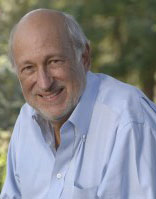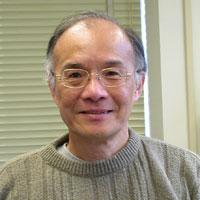TCD/UCD Public Lecture Series 2014-2015
The Department of Sociology at Trinity College Dublin (TCD), in collaboration with University College Dublin (UCD) and the Policy Institute at TCD, has initiated a series of public lectures in which internationally acclaimed speakers will discuss contemporary sociological issues. The aim of this TCD-UCD Sociology Public Lecture Series is to promote informed and non-partisan debate and to offer new ideas on cutting-edge sociological issues including but not limited to responses to the current crisis. It provides a platform to deepen research and teaching synergies between TCD and UCD especially in light of HEA’s policy ‘Towards a Future Higher Education Landscape’. The series features two public lectures per term with one event hosted at TCD and the other at UCD.
Upcoming Speakers:
- Professor Craig Calhoun
- Professor Richard Wilkinson and Professor Kate Pickett
- Professor Michael Hechter
- Professor Nan Lin
First Event
Title: 'What Threatens Capitalism Now'?
Speaker: Professor Craig Calhoun (Director of London School of Economics)
Date and time: 2 October 2014, 5 pm
Venue: Edmund Burke Theatre, Arts Building
Video recording can be accessed here.
Abstract
.gif)
Global capitalism has not yet fully emerged from a period of serious fragility and stalled growth signaled by the financial crisis of 2008-9. Still it did not collapse in crisis nor did it face successful or even widespread movements in favour of a systemic alternative. It may be that capitalism is threatened less by collapse due to internal contradictions, or direct opposition than by external factors. Arguably the biggest risks before the world include not just systemic risk in the capitalist system but the potential for war, problems of the environment, the loss or casualization of employment, the rise of illicit capitalism, and the dissolution of social solidarity. These are not, however, entirely separate factors. They are caused, shaped, or exacerbated by capitalism’s externalities – the ways capitalist enterprises create costs that are borne not on the balance sheets of firms but by others. Creating strong social institutions to mitigate the damage of capitalism’s externalities is a critical challenge globally and nationally. Karl Polanyi described this as a ‘double movement’ in which economic growth destabilises social life and states try to mitigate damage and restore solidarity. Today, relevant state institutions themselves face serious challenges. Philanthropy may help. The informal sector provides partial but not scalable solutions. Entrepreneurship may bring market solutions to some problems. But the questions of how to achieve solidarity, mitigate conflict, and manage global challenges like climate change are as basic as the question of how to achieve capitalist growth.
Biography
Professor Calhoun is a world-renowned social scientist whose work connects sociology to culture, communication, politics, philosophy and economics. He took up his post as LSE Director on 1 September 2012, having left the United States where he was University Professor at New York University and director of the Institute for Public Knowledge and President of the Social Science Research Council. Professor Calhoun took a DPhil in History and Sociology at Oxford University and a Master's in Social Anthropology at Manchester. He co-founded, with Richard Sennett, Professor of Sociology at LSE, the NYLON programme which brings together graduate students from New York and London for co-operative research programmes. He is the author of several books including Nations Matter, Critical Social Theory, Neither Gods Nor Emperors and most recently The Roots of Radicalism (University of Chicago Press, 2012). Describing his own approach to academic work, Professor Calhoun says: 'We must set high standards for ourselves, but in order to inform the public well, not to isolate ourselves from it.'
Second Event
Title: Why Income Inequality Damages Us All: The causal processes
Speaker: Professor Richard Wilkinson and Professor Kate Pickett (University of York)
Date and time: 11 November 2014, 7 pm
Venue: Stanley Quek Hall, Biomedical Sciences Institute.
Video recording can be accessed here.
.gif)
Abstract
If correlation does not prove causality, what accounts for the associations between income inequality and a wide range of health and social problems? Why do more unequal countries do worse on everything from physical to mental health, from violence to drug abuse, from infant mortality to social cohesion? In this lecture, Wilkinson and Pickett will go through the evidence that larger income differences between rich and poor are major causes of the social damage associated with them. They will provide a non-technical summary of the accumulated statistical evidence and then go on to outline the causal social and psychological mechanisms involved.
Biographies
Richard Wilkinson studied economic history at LSE before training in epidemiology. His research drew attention to widening health inequalities, and led him to ask the UK Secretary of State for Social Services to set up an “urgent government inquiry”. The result was the Black Report (1980) which stimulated research on health inequalities internationally. Since then Richard has played a formative role in international research on the social determinants of health and on the societal effects of income inequality. His books and papers have drawn attention to the tendency for societies with bigger income differences between rich and poor to have a higher prevalence of a wide range of health and social problems. Richard is now Professor Emeritus of Social Epidemiology at the University of Nottingham Medical School, Honorary Professor at University College London and Visiting Professor at the University of York. He wrote The Spirit Level with Kate Pickett, a best seller now available in 24 languages, which won the 2011 Political Studies Association Publication of the Year Award and the 2010 Bristol Festival of Ideas Prize. He co-founded The Equality Trust (with support from the Joseph Rowntree Charitable Trust). In 2013 Richard received Solidar’s Silver Rose Award and was named as Community Access Unlimited’s ‘Humanitarian of the Year’.
Kate Pickett trained in biological anthropology at Cambridge, nutritional sciences at Cornell and epidemiology at UC-Berkeley. She is currently Professor of Epidemiology in the Department of Health Sciences, University of York. She was a UK NIHR Career Scientist from 2007-12, is a Fellow of the RSA and a Fellow of the UK Faculty of Public Health. She is co-author, with Richard Wilkinson, of The Spirit Level chosen as one of the Top Ten Books of the Decade by the New Statesman, winner of Publication of the Year by the Political Studies Association and translated into 23 languages. She is a co-founder and director of The Equality Trust.
Third Event

Title: Legitimating Alien Rule
Speaker: Professor Michael Hechter (Arizona State University)
Date and time: 12 March 2015, 7 pm
Venue: JM Synge Theatre, Arts Building
Video recording can be accessed here.
Abstract
This talk suggests that although alien rule is today universally regarded as illegitimate, alien rulers can attain legitimacy to the extent that they provide governance that is both effective and fair. Governance is effective to the degree that citizens have access to an expanding economy and an ample supply of culturally appropriate collective goods. Governance is fair to the degree that rulers act according to the strictures of procedural justice. These twin conditions help account for the legitimation of alien rulers in organizations of markedly different scales. These principles to the legitimation of alien rulers in states (the Republic of Genoa, nineteenth- and twentieth- century China, and modern Iraq), colonies (Taiwan and Korea under Japanese Rule and various parts of the French Empire), and occupation regimes, as well as in less encompassing organizations such as universities (academic receivership), corporations (mergers and acquisitions), and stepfamilies. Finally, I will speculate about the possibility of an international market in governance services.
Biography
Michael Hechter received both his AB and Ph.D. from Columbia University. He is an elected Fellow of the American Academy of Arts & Sciences, Foundation Professor of Political Science at Arizona State University, and Professor of Sociology at the University of Copenhagen. Hechter has previously taught at the Universities of Washington, Arizona and Oxford. He has been a fellow at the Center for Advanced Studies in the Behavioral Sciences and the Russell Sage Foundation, and was a visiting professor at the Universities of Bergen and Ljubljana. Hechter is the author of numerous books, including Internal Colonialism: The Celtic Fringe in British National Development, 1536-1966 (1975; 1998); Principles of Group Solidarity (1987); Containing Nationalism (2000), and Alien Rule (2013). He is editor/co-editor of The Microfoundations of Macrosociology (1983); Social Institutions: Their Emergence, Maintenance and Effects (1990); The Origin of Values (1993); Social Norms (2001, 2005); and Theories of Social Order (2003; 2008). His articles have appeared in the American Journal of Sociology, Demography, Journal of Theoretical Politics, Rationality and Society, Sociological Theory, European Sociological Review, and many other journals. His writings have been translated into Italian, Japanese, Hungarian, Chinese, Arabic, French, Spanish, Polish and Georgian.
Fourth Event

Title: Social Networks and Economic Activities: An Embedded Economy Perspective
Speaker: Professor Nan Lin (Duke University)
Date and time: 28 April 2015, 7 pm
Venue: JM Synge Theatre, Arts Building
Video recording can be accessed here.
Abstract
The significance of social networks for economic activities has received much research attention since Granovetter’s (1985) embeddedness argument. Yet, most research has been conducted in economic and business settings, suggesting that the significance of social networks for economy is meaningful only within the context of economy and business. I argue that social networks in fact present a context that facilitate and promote economic activities. Historically we have seen how ethnic and familial ties afford the formation of institutions such as trust that promoted trades in Europe, Africa and Asia. This social networks-embedding-economy phenomenon persists to the present day. Further, there is strong evidence that such embedding social networks can be constructed and sustained beyond ethnicity, family and location to dictate economic activities. Online cybernetworks (e.g., Facebook) are examples. I will discuss the implications of this social-network-embedding-economy perspective for theory, research and strategic actions.
Biography
Nan Lin is the Oscar L. Tang Family Professor of Sociology at Duke University. He is most notable for his research and writing on social networks and social capital. Lin received his undergraduate degree from Tunghai University, Taiwan; his M.A. from Syracuse University and his doctorate degree from Michigan State University. Lin's research interest lies in social networks, social support and social capital. He has contributed theory, devised measurements and conducted empirical research in each of these areas. He has applied the theory and measurements to the study of social stratification and mobility, stress and coping, and individual, organization and community well-being. Lin has authored or edited eleven books, forty book chapters and numerous journal articles. His books include Social Capital: A Theory of Social Structure and Action, which has been praised as ‘the definitive work on the subject of social capital’, amongst others.

